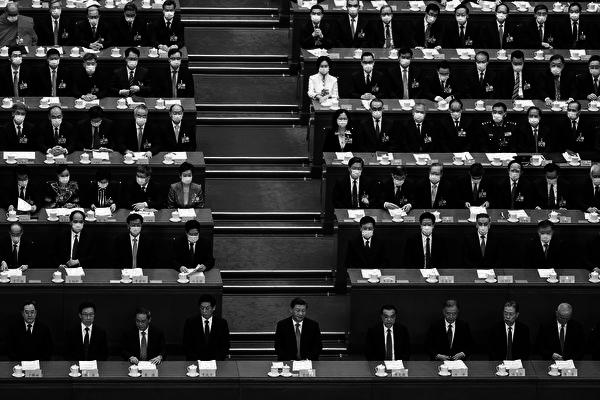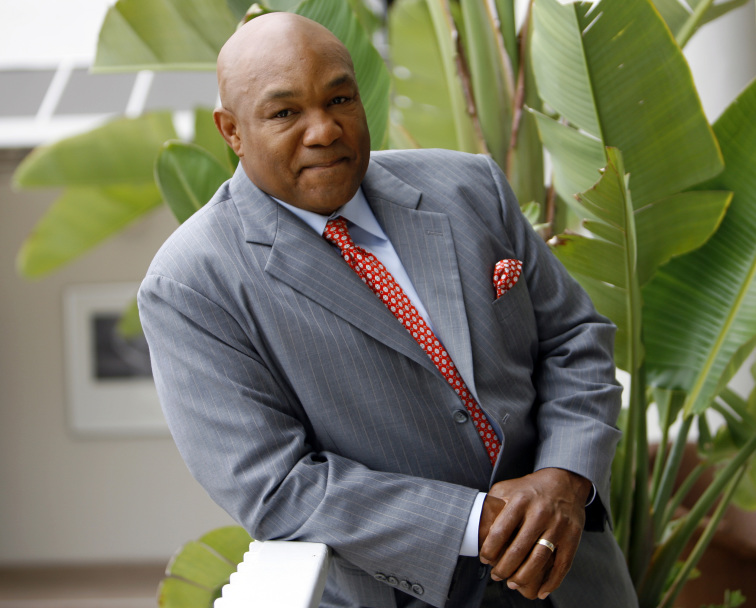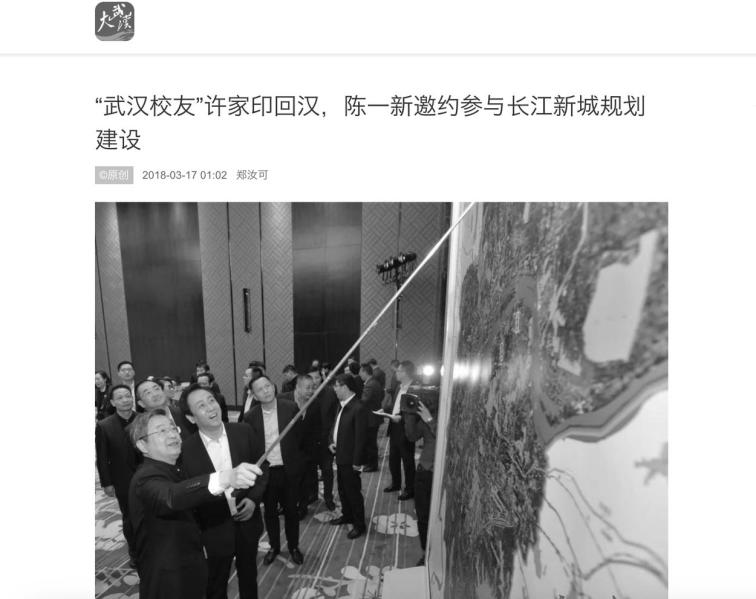On March 5, 2023, CCP leaders attended the opening session of the National People's Congress.
[People News] Recently, all eight heads of the Chinese Communist Party (CCP)’s "Central Guidance Groups for In-Depth Study and Implementation of the Eight-Point Regulation Spirit" have been officially revealed. These groups will lead inspection and education efforts across 21 regions and institutions, including Hebei, Anhui, Henan, Hainan, Qinghai, Qianjiang (Hubei), and Changde (Hunan); the Economic Daily, Ministry of Industry and Information Technology, Ministry of Agriculture and Rural Affairs, General Administration of Sport, and the State Tobacco Monopoly Administration; China Investment Corporation, Industrial and Commercial Bank of China, China Life Insurance (Group) Company; China State Shipbuilding Corporation, State Grid Corporation of China, Sinochem Holdings; and universities such as Renmin University of China, Tianjin University, and Jilin University.
These Central Guidance Groups were established following a March directive issued by the General Office of the CCP Central Committee. A training meeting was held at the end of April, where, notably, Minister of the Central Organisation Department Shi Taifeng, recently promoted to deputy head of the Party-building Leading Group, gave a speech instead of Politburo Standing Committee member Cai Qi or previous deputy head Li Xi.
Traditionally, the heads of Central Guidance Groups have been former provincial Party secretaries, CPPCC chairpersons, or retired ministers and vice ministers currently serving in the National People's Congress (NPC) or the Chinese People's Political Consultative Conference (CPPCC). The backgrounds of this year’s eight leaders are as follows:
1. Li Jinbin (67, Head of the First Group). A member of the Communist Youth League (tuanpai) faction, he served in Jilin for years, then moved to Shaanxi as Organisation Department head. In 2013, he was transferred to Anhui, where he became governor and later Party secretary. He stepped down in 2021 and now serves as deputy director of the NPC’s Environment and Resources Protection Committee.
2. Xu Lingyi (67, Head of the Second Group). Also from the tuanpai, Xu worked extensively in Zhejiang, including as Youth League head in Wenzhou and county Party secretary. He later worked at the State Bureau for Letters and Calls and served as deputy secretary of the Central Commission for Discipline Inspection (CCDI) and deputy director of the National Supervisory Commission. He stepped down in 2022 and now serves on the CPPCC as chair of its Social and Legal Affairs Committee.
3. Liu Jiayi (69, Head of the Third Group). Former auditor general and later Shandong Party secretary, Liu is now a CPPCC member and chair of its Proposal Committee. He attended the CCP Central Party School in 1995–96, when Hu Jintao was its president and Shi Taifeng was a senior academic there.
4. Che Jun (70, Head of the Fourth Group). Also a tuanpai member, Che has served in various posts in Anhui and Hebei, later holding top posts in Xinjiang and then becoming Zhejiang Party secretary before retiring in 2020. His younger brother, Che Jianjun, was expelled from the Party and public office that same year. Che also trained at the Central Party School under Hu Jintao.
5. Fu Ziying (68, Head of the Fifth Group). A career diplomat and trade official, Fu served as deputy governor of Jiangsu, anti-corruption official at the Propaganda Department, vice minister of Commerce, and director of the Macau Liaison Office. He retired in 2022 and now serves as deputy director of the NPC Foreign Affairs Committee. He also trained under Hu Jintao.
6. Liu Cigui (69, Head of the Sixth Group). A tuanpai member, Liu held roles in the Communist Youth League of Fujian and later served as Xiamen mayor, director of the State Oceanic Administration, and Hainan governor and Party secretary. He retired in 2020 and is now a CPPCC member and chair of its Hong Kong, Macao, Taiwan, and Overseas Chinese Affairs Committee.
7. Wang Jianjun (66, Head of the Seventh Group). Longtime cadre in Qinghai's Organization Department, Wang rose through the ranks to become provincial governor and later Party secretary. He retired in 2022, earlier than the typical retirement age, and now chairs the CPPCC’s Agriculture and Rural Affairs Committee. He worked under Zhao Leji during his tenure in Qinghai.
8. Zhang Yijiong (70, Head of the Eighth Group). Another tuanpai figure, Zhang, served in Qinghai and Tibet, including as deputy Party secretary and political and legal affairs secretary. He later held posts in Jiangxi and at the United Front Work Department. He retired in 2022 and now serves as vice chair of the CPPCC’s Ethnic and Religious Affairs Committee.
Some of these eight already served as heads of similar guidance groups for the study of "Xi Jinping Thought" in 2023. A common feature among them is that their careers span both the Hu Jintao and Xi Jinping eras. Although some have personal ties to current or former Politburo members, they are clearly not considered core Xi loyalists and likely do not enjoy his full trust. Instead, they are high-level officials known for their political flexibility and self-interest.
Unlike two years ago, when such group announcements would prominently reference Xi, this year’s appointments make no mention of him, at least not in official reports. Even Shi Taifeng’s speech only briefly touched on Xi. The reports simply state that the guidance groups "emphasised strict and practical enforcement of responsibilities, and real, hard supervision." This change is worth noting and likely reflects shifts within the CCP’s top leadership.
The "Eight-Point Regulation" was introduced in December 2012 after Xi Jinping came to power. It targets Politburo members and includes specific provisions such as streamlining research visits, cutting unnecessary meetings and paperwork, regulating overseas travel, improving security and media work, simplifying speech publications, and promoting thrift.
However, in practice over Xi’s three terms, his administration has not followed the regulation’s spirit. Local inspections are still staged, meetings are filled with hollow jargon, overseas trips remain extravagant, and top officials still cause road closures and security lockdowns. State media reports on Xi and other Politburo members are full of formalistic clichés. As with everything in the CCP’s hierarchy, when the top sets such an example, lower levels naturally follow suit. Saying one thing but doing another has become the norm.
This renewed campaign to enforce the Eight-Point Regulation between the "Two Sessions" (NPC/CPPCC) and July likely aims to salvage the Party’s rapidly eroding public legitimacy. But without systemic reform, such campaigns amount to nothing more than old wine in a new bottle.
Originally published by People News.









News magazine bootstrap themes!
I like this themes, fast loading and look profesional
Thank you Carlos!
You're welcome!
Please support me with give positive rating!
Yes Sure!